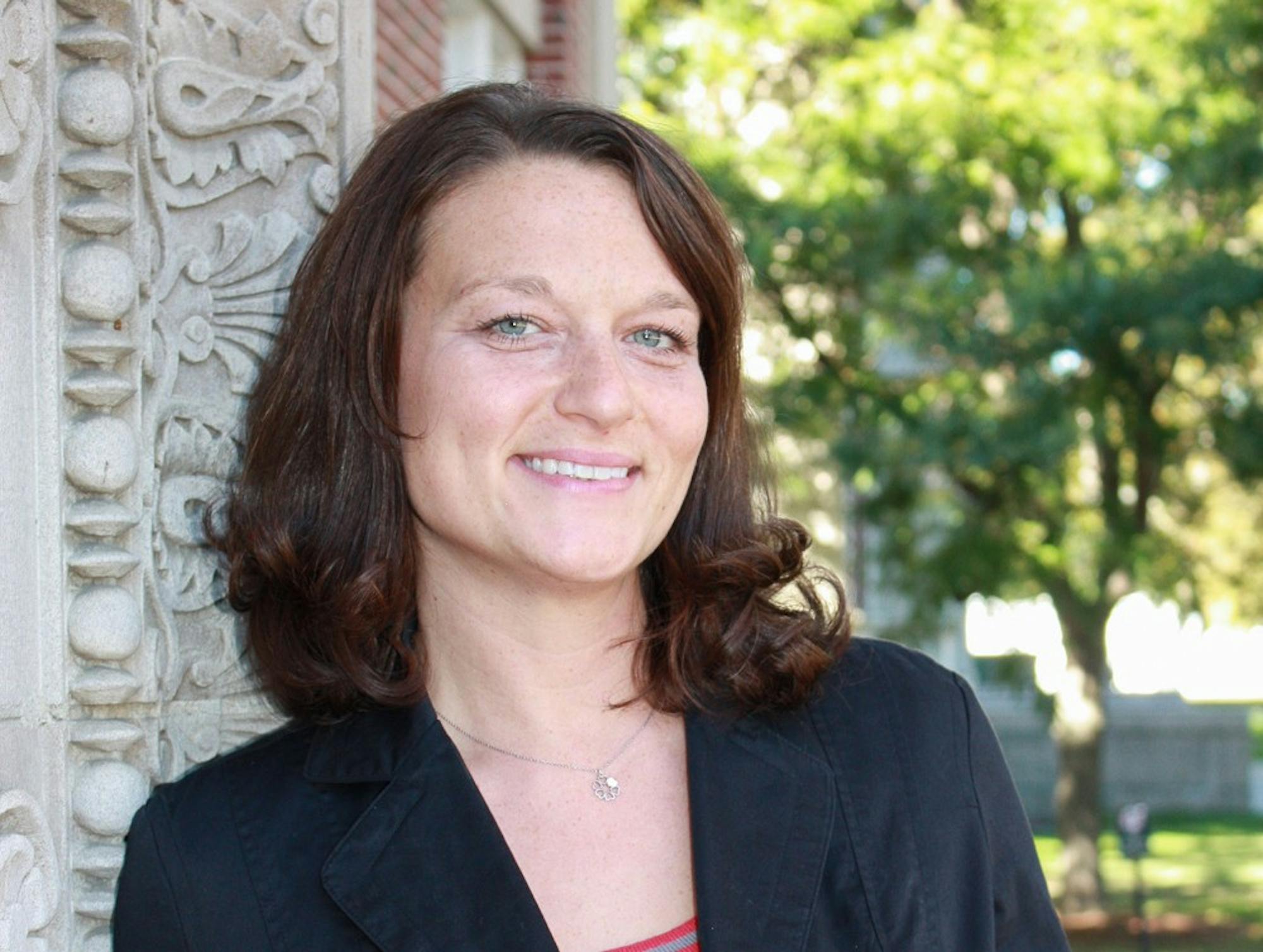Caitlin Barthelmes’ office space — tucked away on the third floor of Robinson Hall in the Student Wellness Center — can appear a little mysterious to the casual observer. Equipped with a massage chair, free health-related goodies and bowls of candy, Barthelmes and the staff at the Student Wellness Center are working to empower students through holistic and preventative wellness processes.
Now the center’s director, Barthelmes came to the College three years ago as alcohol and other drug education coordinator. As an undergraduate at the University of Virginia, she decided to focus her time on issues that most interested her such as health promotion.
“Like many Dartmouth students, I had been doing a million things in high school and was burnt out,” she said.
Becoming a peer health educator in college and choosing to deeply engage in the practice helped her discover the world of preventative health and wellness, Barthelmes added.
“The whole philosophy was about supporting my peers in making decisions that were consistent with their values — that’s sort of been a driving force behind my whole career,” she said.
After working in alcohol prevention after college, Barthelmes got her Master’s degree in public health at Brown University and spent time in Boston working for a training institute to put evidence-based health promotion techniques into practice in communities around the world, from Alaska to Puerto Rico.
While the experience was enriching, Barthelmes said she always knew she wanted to go back to collegiate health. Getting a job at the College in alcohol and drug education “was like coming full circle,” she said.
Barthelmes cited the high-achieving environment at the College as a key factor in the need to promote student wellness.
“Dartmouth students are smart, passionate and caring about so many things, but with that drive also comes a lot of personal self-pressure,” she said. “Between that pressure and the environment that is set up with our quick-paced terms, I do see students struggling to maintain their optimal selves quite a bit.”
Given these pressures, the role of the Wellness Center is focused on preventative aspects of health, Barthelmes added.
“Rather than waiting until those crisis moments or until things are overwhelming, we want to help students reflect on their lives, keep a temperature on where they are that and implement things earlier so it doesn’t accelerate to that state,” she said.
Barthelmes is a passionate advocate of “motivational interviewing,” a counseling method that works to engage a client’s internal motivation to understand his or her situation and elicit change. The technique is used in training undergraduate advisors as well as wellness peer advisors with the Wellness Center.
“I’ve noticed that it’s hard to connect with people, and not just student to student,” she said. “Here at Dartmouth we get really caught up in our work, and we have to be really intentional about looking up from our phones and our computers and looking at each other.”
Ying Lin ’16, who underwent motivational interviewing training this term to become a wellness peer advisor, said that Bathelmes’ dedication to her job was apparent.
“[Barthelmes] has this incredible seemingly limitless store of positive radiant energy that you can’t help but let infect your own life no matter what type of day, good or bad, you may be having. And it’s not just a show. Even in those rare moments when she admits that her energy levels are not 100 percent, she still shines more brightly than most people I know,” Lin said.
Deidra Nesbeth ’16, student intern at the Wellness Center, echoed Lin’s praises.
“[Barthelmes’] strength as a leader of the Student Wellness Center comes from a respect for the individuals she works with and a willingness to try new initiatives,” she said.
Her professional rapport is similarly strong, Nesbeth said.
“She’s aware that she’s not doing this work alone, and in fact, cannot do this work on her own,” Nesbeth said. “She places value in the contributions of others — both students and full-time staff.”
Her enthusiasm for working with college students stems from the fact that there is so much potential in each one, Barthelmes said.
“If we can catch those moments of distress a little earlier in the spectrum, we can save someone from a lot of trouble and interventions needed down the line,” she said. “Sometimes all it takes is that 15-minute conversation to motivate someone to walk out the door and do one thing different.”
The trickle-down effect of effective prevention is key to promoting student wellness, but the presence of resources such as counseling, Dick’s House and Dartmouth-Hitchcock Medical Center is what allows the Wellness Center, which sometimes refers students to these resources, to function properly.
“You have to think of these issues across the spectrum — there’s downstream interventions that need to be in place, but sometimes you need to look upstream. If you address the problem upstream, like with wellness and prevention techniques, you can affect the whole system,” Barthelmes said.
Ultimately, while prevention is a difficult practice, Barthelmes hopes that students will realize that sometimes simple small fixes, from meditation to understanding one’s own individual wellness status, can allow them to reduce the chances that they will end up in an overwhelming crisis state of stress or difficulty.
“Certainly you can only do so much,” she said. “But I think every little bit we do together as a community builds into culture shift, and that is why I do the work I do.”




